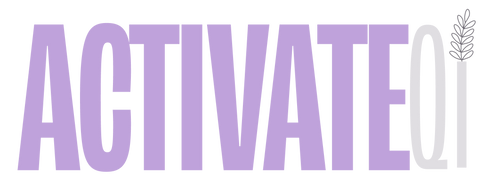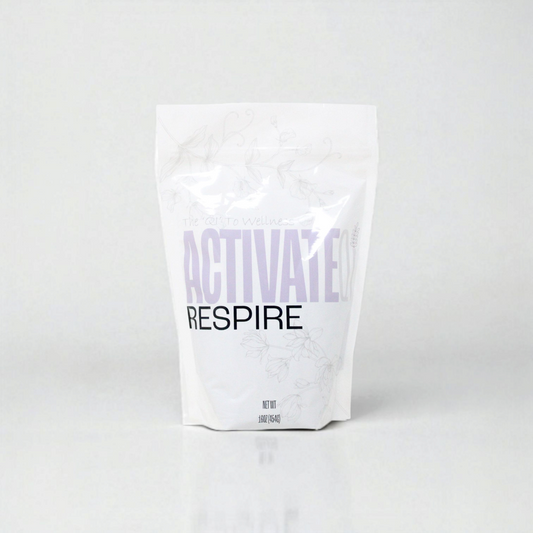Rethinking Equine Health: Why "Plump" Doesn’t Mean Healthy
In today’s world, many equestrians and horse owners associate a "thick" or "plump" appearance with good health. A horse with a bit of extra weight is often seen as well-fed and thriving. But is this really the case? As we witness an increase in health issues such as bleeding, respiratory complications, and gastrointestinal problems, we must ask ourselves: What is the root cause of these challenges?
Challenging the Traditional View of Equine Health
When we consider professional human athletes, we don’t equate excess weight with peak performance. Athletes fuel their bodies with nutrient-dense foods and focus on maintaining an optimal weight to enhance their abilities. So why have we normalized the idea that horses should carry extra weight to appear healthy?
The reality is that extra weight doesn’t mean a horse is healthier—it often signals underlying inflammation that can lead to serious health problems.
The Connection Between Excess Weight and Inflammation
Carrying unnecessary weight can create systemic inflammation, also referred to as "heat" in the body. This internal heat contributes to imbalances that make horses more prone to chronic health conditions. When a horse is overweight, the strain doesn’t just impact their appearance; it affects their joints, muscles, organs, and overall function.
The Hidden Consequences of Inflammation
Some of the most concerning consequences of inflammation include:
Respiratory Issues: Extra weight can make it harder for horses to breathe efficiently during exercise. Additionally, a weakened immune system and overworked kidneys can reduce lung function. If the spleen, responsible for blood production, is imbalanced, it can contribute to bleeding disorders in performance horses.
Gastrointestinal Problems: Inflammation in the body can disrupt digestion, leading to common problems such as bloating, ulcers, and discomfort. Horses suffering from chronic inflammation may struggle with nutrient absorption, leading to further imbalances in their health.
Joint and Muscle Stress: Excess weight places unnecessary strain on joints, tendons, and muscles, making horses more prone to injury and stiffness. Over time, chronic inflammation can contribute to arthritis and other degenerative conditions.
Metabolic Disorders: Horses carrying excess weight are at a higher risk for metabolic issues such as insulin resistance, laminitis, and equine metabolic syndrome (EMS), all of which can severely impact their quality of life and longevity.
Reduced Performance and Fitness: Excess body fat limits a horse’s ability to move freely, affecting endurance, stamina, and agility. Over time, this can result in a decline in overall fitness and make training or competition more difficult.
Shifting the Focus: Fitness Over Fat
Instead of measuring a horse’s well-being by their body size alone, we need to shift our focus to true health—which includes fitness, energy, and functional wellness. A healthy horse should be strong, athletic, and free from excess inflammation.
How to Support Optimal Equine Health
1. Prioritize a Balanced, Anti-Inflammatory Diet
Feeding nutrient-dense, tested forage is crucial in reducing inflammation and maintaining a healthy weight. A diet rich in anti-inflammatory nutrients supports proper organ function and digestion while helping the body maintain equilibrium.
Avoid excessive sugars and processed feeds. Many commercial feeds contain fillers and carbohydrates that contribute to inflammation and weight gain.
Incorporate natural anti-inflammatory ingredients. Herbs known for their cooling properties can help balance internal heat and reduce inflammation.
2. Encourage Regular Exercise
Movement is essential for circulation, muscle development, and overall wellness. Horses should be engaged in a fitness routine that builds strength and stamina while keeping their body in peak condition.
Vary workouts to include cardiovascular training, strength-building exercises, and flexibility work to maintain full-body fitness.
Ensure proper warm-ups and cooldowns to prevent injuries and allow muscles to adjust gradually to physical exertion.
Monitor workload and recovery to ensure that horses are not being overworked or underworked, both of which can contribute to weight imbalances.
3. Implement Holistic Health Practices
Supporting organ function through holistic approaches can help manage inflammation and promote overall well-being. This may include:
Acupuncture to support circulation, relieve muscle tension, and promote systemic balance.
Herbal supplementation to strengthen immune function and support respiratory, digestive, and metabolic health.
Massage therapy and bodywork to help release tension and encourage proper movement patterns.
The Bottom Line: Redefining Horse Health
It’s time to move away from outdated ideas that equate a plump appearance with good health. Instead, let’s prioritize fitness, performance, and longevity. A truly healthy horse is lean, strong, and free of chronic inflammation, allowing them to perform, work, and enjoy life to the fullest.
By focusing on nutritional balance, movement, and holistic health, we can support our horses in living healthier, more comfortable lives. Let’s shift our mindset and redefine what true equine health looks like.
At ActivateQi, we’re committed to helping horses achieve optimal health through natural, holistic solutions. Explore our products designed to support inflammation management, respiratory health, and digestive function to keep your horse performing at their best!




